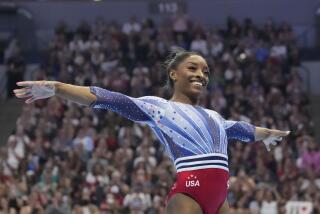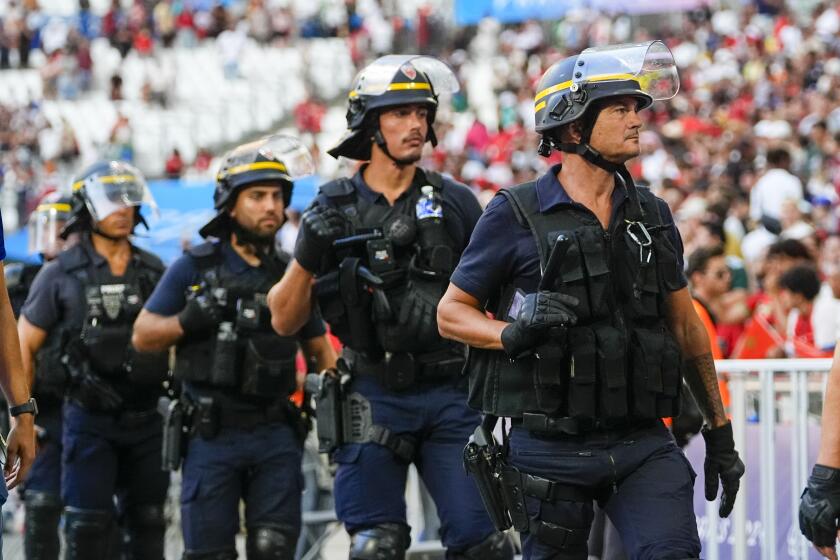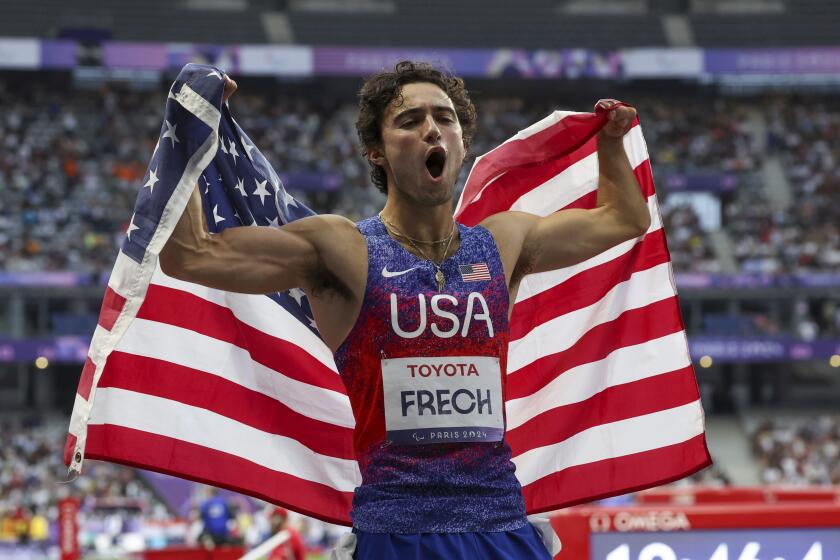Landis bashes arbitration process
On the day after, Floyd Landis was fuming.
“The deck was stacked,” he said Friday from his home in Murietta. “It turned out that the best odds I had were zero.”
On Thursday, a three-member arbitration panel in a split decision stripped the Pennsylvania-born cyclist of his championship in the 2006 Tour de France and banned him from competition for two years, backdated to January.
The verdict closed a long and grueling chapter in Landis’s life, coming 14 months after he was declared the winner of the 2006 race, four months after the end of a wearing nine-day evidentiary hearing and two months after the 2007 Tour de France.
Landis put up the most sustained and detailed challenge to the sports anti-doping program’s science, fairness and integrity since the World Anti-Doping Agency was created to oversee it in 2000, raising serious doubts that even the arbitrators acknowledged.
His legal effort was as intense as his comeback victory in Stage 17 of the 2006 Tour, the one in which he was accused of spiking his system with testosterone.
But the outcome was the same as it has been in every doping arbitration held in the United States: conviction and condemnation.
Landis said he had been resigned to losing his appeal, even though the long gap between the hearing and the decision led some of his supporters to hope that the arbitrators were giving the evidence unusually close inspection.
The 31-year-old cyclist lashed out at the two arbitrators who voted against him. They were Richard McLaren, a London, Canada, lawyer generally known to favor prosecutors and appointed to the panel by the U.S. Anti-Doping Agency, the prosecuting agency in this case; and Patrice Brunet, a Montreal lawyer selected as the neutral arbitrator. The third arbitrator, Bay Area lawyer and former Olympic wrestler Christopher L. Campbell, appointed by Landis, is known for his concern for athletes’ rights; he filed a blistering written dissent arguing for Landis’ innocence, the fourth time he has done so in a doping case.
“I know McLaren . . . was going to vote for USADA because that’s what he does,” Landis said. “And Brunet was absolutely incapable of understanding the science. He just didn’t get it.” (McLaren didn’t respond to a request for comment and Brunet, through an assistant, declined to comment.)
“Right now I have a very dim view of humanity,” Landis said, “even though I know in my heart that most people are trying to do the right thing. I just have to get away from all this for a while.”
There’s no question that the process itself is tilted in the prosecution’s favor. The rules of procedure were drafted by WADA to limit the evidence accessible to athletes and to make convictions easy and cheap for the prosecuting agencies.
On the other hand, the arbitrators are free to consider documents, testimony, and other information that would be shunned by a judge in a conventional court.
In Landis’s case, the panel appointed the director of WADA’s Rome lab as its scientific advisor. It appears from the majority opinion, however, that the advisor, Dr. Francisco Botre, went beyond merely explaining technical issues to the arbitrators and volunteered his opinion about evidence.
“We were a little surprised to see how much input he had, based on the opinion itself,” said Landis’ attorney Maurice Suh. “We really don’t know what he ended up doing.”
McLaren and Brunet, in their majority decision, acknowledged that the playing field is not level. They accepted that WADA’s Paris lab, which managed Landis’ Tour de France sample, committed numerous errors in handling and analysis, and that several defense experts testified that the standards at conventional forensic laboratories are higher and more rigorous than what WADA accepts. But they said that WADA rules required them to presume that its labs do their work properly.
“That’s one more reason to feel that nobody will ever get a fair hearing,” Landis said.
Campbell took exception to his arbitration colleagues’ indifference to the question of lab standards. “If you are going to hold athletes strictly liable with virtually no possibility of overcoming a reported alleged positive test even in the face of substantial and numerous laboratory errors,” he wrote, “fairness and human decency dictate that strict rules be applied to laboratories as well.”
Then there’s the cost of mounting a defense in a legal arena so tightly controlled by the prosecution. Landis has spent more than $2 million on his defense -- “and I still owe hundreds of thousands of dollars to my expert witnesses and lawyers,” he said. “There’s nobody in any Olympic sport who can afford to go through this process.”
Although he has the right to appeal this week’s verdict to the Court for Arbitration for Sport, an international body sitting in Lausanne, Switzerland, he has not yet decided whether to do so.
“I suppose it’s doable if I want to spend a year of my life away from my family,” he said. “I have to decide whether it’s really going to make my life any better.”
One reason to go through the exercise, he said, is to preserve the option of trying to get a U.S. court to review the case, on the assumption that a federal court would insist that he exhaust all his arbitration options before taking a look.
As for Landis’ future in racing, he said he’s confident he can continue training and maintain his competitive sharpness through the suspension period, which will end Jan. 29, 2009, and race again. He’s not sure he wants to return to the Tour de France, however.
“I’d be perfectly happy to keep away from that world,” he said. “For my mind, I won the Tour de France. Even if I never win it again, I’ll never forget that feeling of putting in all the hard work and accomplishing that. I’m prouder of that than anything I’ve ever done.”
--
More to Read
Go beyond the scoreboard
Get the latest on L.A.'s teams in the daily Sports Report newsletter.
You may occasionally receive promotional content from the Los Angeles Times.






